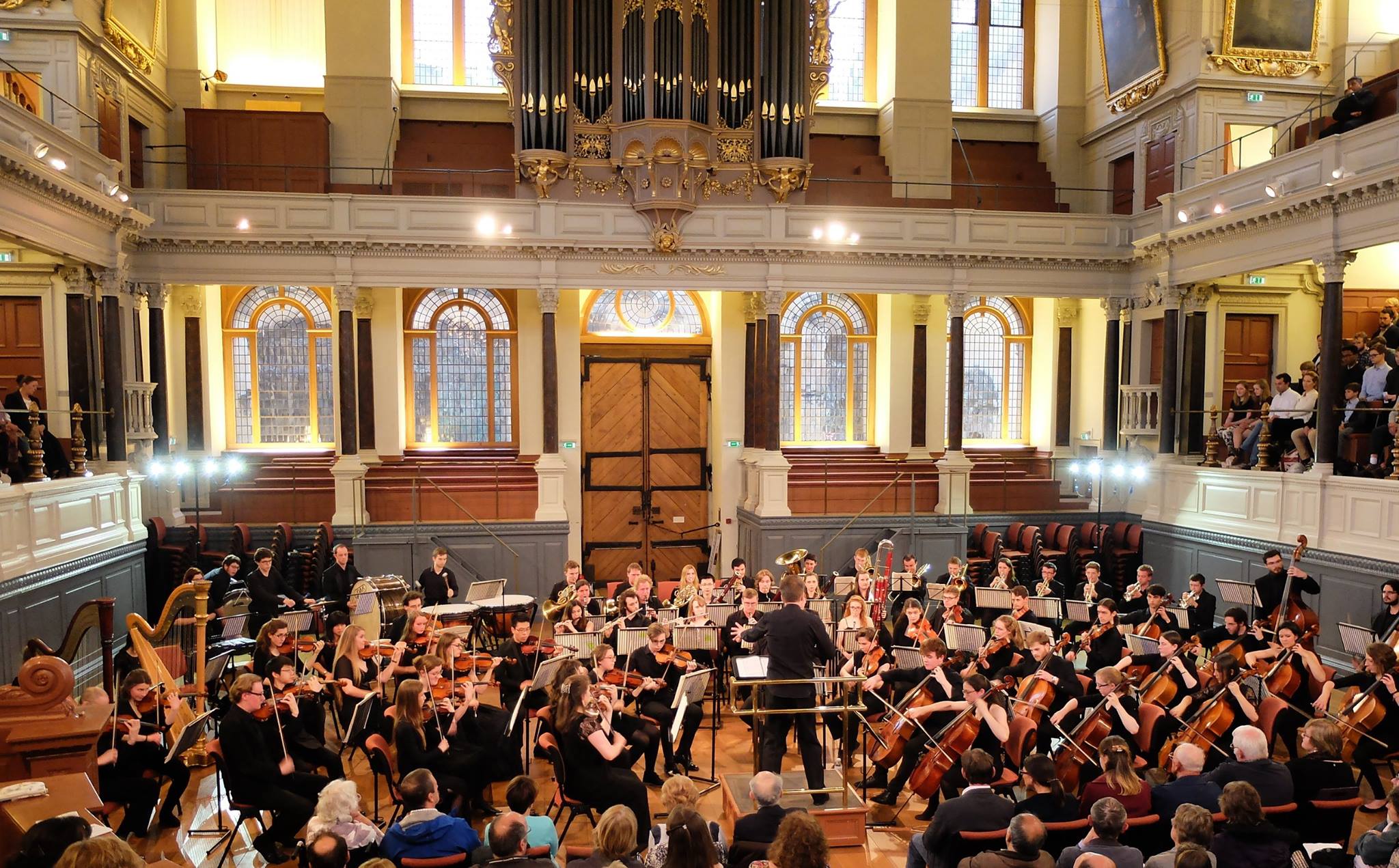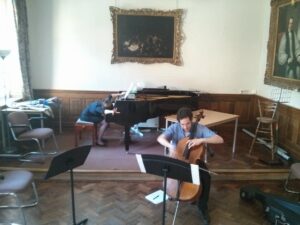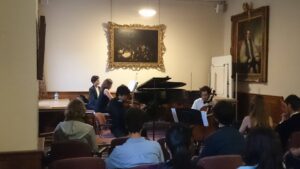Music: The (Almost) Universal Language


I was nervous about a lot of things before I left for my term abroad. Fitting into the new environment, making friends, producing adequate coursework—all of these concerns swirled around my head as I made the long trek from the U.S. to England. But one of my biggest worries once I got off the plane was finding a cello.
I had placed over a dozen phone calls, first to Oxford and surrounding towns, and then to places all over London, in desperate hopes of finding a cello to rent during my stay. Bringing one with me was out of the question—the only thing worse than undertaking a three-plane, 18-hour journey is undertaking one with a cello to look after.
After a few days of desperation and momentary panic, I finally found a London-based cello rental business that was willing to let me “hire” a cello for 6 months. A lovely two-hour session with Tom the affable cello-appraiser later, and I was all set to go with a cello, bow, and coffin-like case—plus I was newly informed on the intricacies of 19th-century British and German cello-making!
My scheme to make friends through music was off to a good start—but this was just the first turn in a long, winding, and exhilarating road.
The Audition

My first week at Oxford got off to a bit of a rough start. We were greeted by the lovely Oxford weather—cold, windy, and drizzly. I started by earnestly getting acquainted with the library and all its associated fun. I also caught a cold, which fit poetically with the chill but didn’t do wonders for my mood.
Regardless, I had an audition date set to determine which orchestras I would receive offers to play in during the term.
I had spent the last few weeks practicing repertoire so I would be ready, but all the same I felt nervous and unprepared when the time came. I got a little lost on the way to the audition location, and came into a room of judges with no seat set out for me to sit on. As I awkwardly dragged a chair over from one end of the room, I eyed the judges—a panel of students, each representing a different orchestra. One final deep breath (and a sniffle), and I began, getting into the complex rhythms and dark mood of the depressed Soviet Russian composer Dimitri Shostakovich, attempting to do justice to his cello sonata.
The audition passed in a blur, and then I had to endure the hardest part: waiting. Each “beep” of an email notification was accompanied by intense anticipation, and then annoyance when it was not the email I wanted. At last, the note came. I had gotten into the top group—Oxford University Orchestra! Suddenly I was bursting with happiness and the warm glow of excitement.
A Funny Thing Happened on the Way…

I began the thrice-weekly ritual of lugging my coffin-case halfway across town to partake in orchestra rehearsals. The cello section was mellow and friendly as always, and I quickly felt at ease with my new extended family.
There’s nothing like bonding over rehearsal in cramped, unheated, and dimly lit medieval churches around Oxford. But together we fell in love with the sound, which included Stravinsky’s Rite of Spring—a piece so ferocious it sparked a riot when it was first performed in 1914.
On one such journey to rehearsal, I ran into Anna, a fellow student at my college who told me she was looking for a cellist to fit into a piano trio (piano, violin, and cello). We all happened to live in the same dorm, and despite our distant origins from three different continents (Anna, the pianist, from Poland, and Kotaro, the violinist, from Japan) we soon became close friends as well as musical companions. They foolishly let me pick the music—which of course meant that we ended up playing Shostakovich. Anna invited me to visit her in Warsaw during break, where she showed me around and took me to a Chopin concert.
Hemisemidemiquavers
While I expected I would need to adjust from hearing American English to British English, I didn’t anticipate having any problems rehearsing music. After all, music is the “universal language”; I could go anywhere in the world and communicate through notes and rhythms.
By the end of the term I was juggling three different orchestras at a time, but loving it all the same.
While music may indeed be universal, the words we use to describe it certainly aren’t. I was rudely awakened to that fact as I became quite lost in rehearsal and found myself unable to explain simple musical comments in trio practice. Half notes were now “minims,” quarter notes were “crochets,” eights “quavers,” and sixty-fourth notes “hemisemidemiquavers.” I was playing “Debússy” and “Shostákovich” instead of the pronunciations I was used to, and I used a “spike” instead of an endpin to connect my cello with the floor. I was still mixing-up crochets and quavers even at the end, leading to some confusing moments and some (wholly unnecessary) teasing by my trio mates.
Part of a Community
I started getting different offers to play in orchestral ensembles large and small, and had difficulty turning them down. It tended to be the usual suspects each time—the same close-knit group of musicians played in all of the same groups. By the end of the term I was juggling three different orchestras at a time, but loving it all the same.
I take special pride in our trio performance. We filled the concert hall with our friends, who were eager to take a journey back to WWII-era Russia, and supported us to the end. These were moments when I most felt like part of a community despite being so many thousands of miles from home.
Music ensembles tend to have a cycle: form, rehearse, perform, disband. All the most intense emotions happen at the end—the thrill of distilling months and months of hard work into just a few hours or even minutes, followed by the lingering uneasiness of goodbyes.
My experiences at Oxford were no exception. The final performance of Rite of Spring was tremendous. Over a hundred musicians had come together from around the world to perform riot-worthy music, yet afterward the dream ended in the blink of an eye. But while the ensemble may have disbanded, the friends, memories, and music will always remain.
Joshua F. | Political Studies student | Amherst College | University of Oxford Partnership in England | 2016